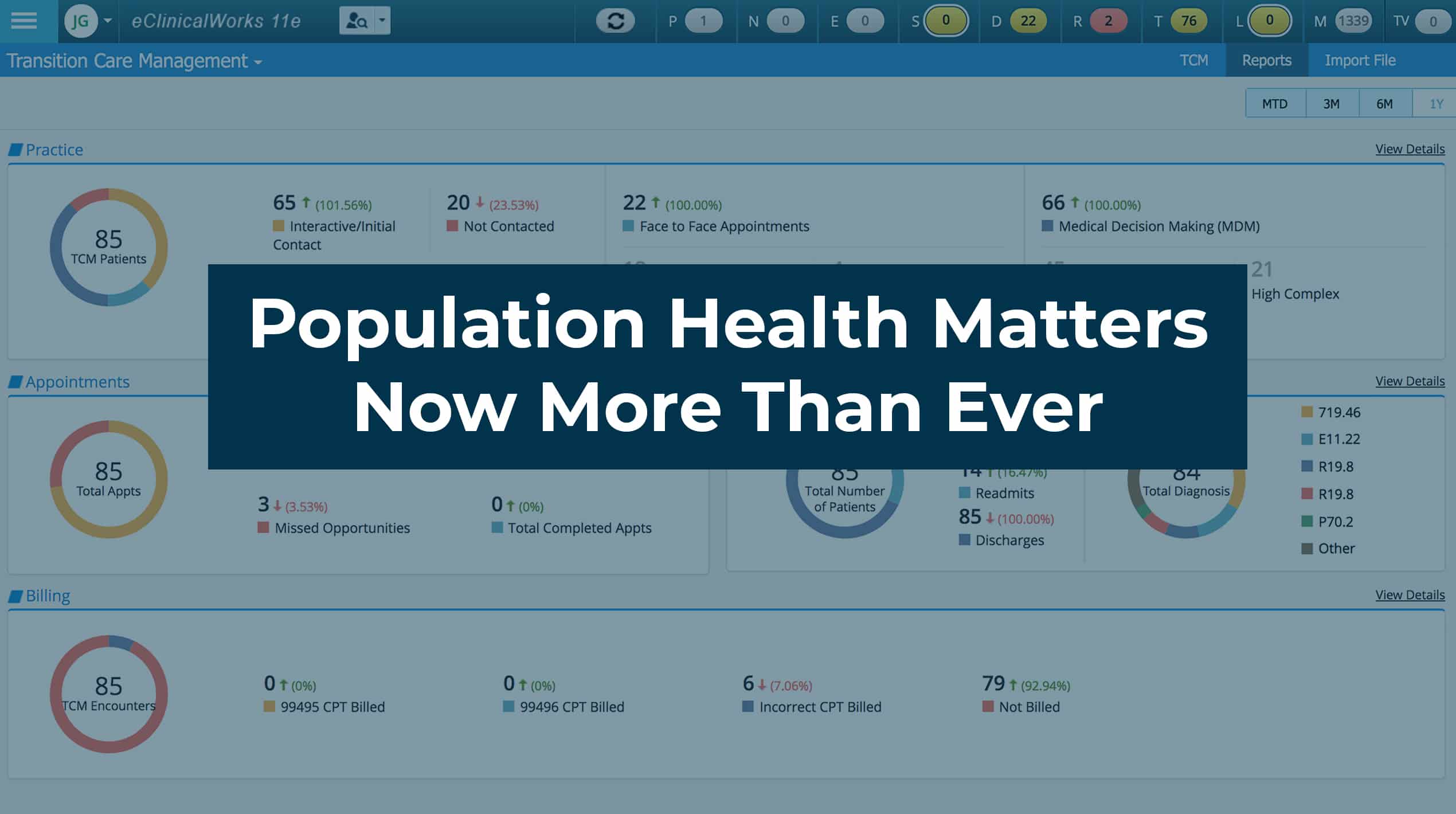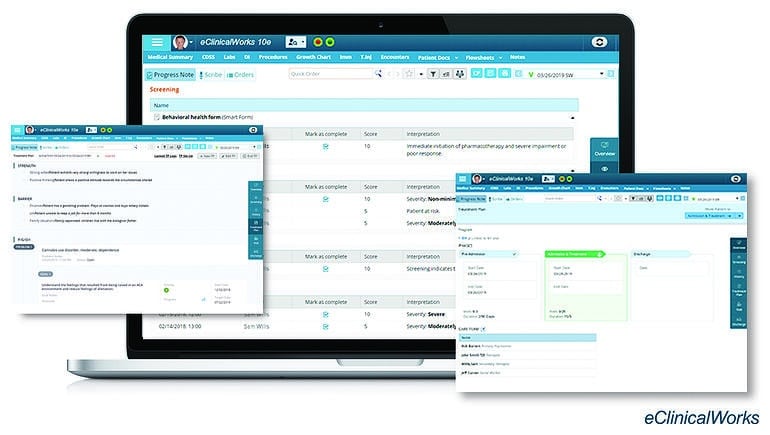Population Health Matters Now More Than Ever
- 21 January 2021
- Blog
eClinicalWorks

How eClinicalWorks tools have made a difference
Our practice, Adult Medicine of Lake County, has been successfully using Population Health tools from eClinicalWorks for several years. The Chronic Care Management (CCM) and Transition Care Management (TCM) modules have enabled us to serve a growing patient population while improving outcomes.
Yet it took a global pandemic to show us what was wrong with an apparently perfect picture: We had taken eClinicalWorks for granted!
To be sure, CCM and TCM are fantastic tools. But last spring, as coronavirus forced practices everywhere to close their doors, enact precautions, and then reopen on a limited basis, we quickly recognized how lucky we were to have eClinicalWorks.
We were able to rapidly set up our staff to work from home, simply by sending them home with a laptop. Normally, a change of that magnitude might require seeks for setting up and testing a Virtual Private Network. But thanks to having eClinicalWorks, we avoided those costs in time and money. We simply had nothing to worry about on the technical side!
Care coordinators knew exactly what to do
Adapting how we delivered care was equally seamless.
Because we already had existing relationships with so many of our chronic-care patients, we knew exactly which ones we needed to contact. My care coordinators were able to identify which specialists were still seeing patients and which visits were a priority. Population Health tools from eClinicalWorks give us that 10,000-foot view of each patient’s health that we needed to plan care effectively under unprecedented circumstances.
Before moving to eClinicalWorks, our practice used to rely on spreadsheets, whiteboards, and fax machines to plan and track care for chronically ill patients. It was a haphazard process, at best. eClinicalWorks brought order and efficiency to our care delivery. But it was the COVID-19 pandemic that really brought home how important and valuable those tools could be when staff were suddenly unable to be in the same room for weeks at a time.
With eClinicalWorks, our team stayed on the same page, from what was happening in the office, to my remote workers, to what was happening in the hospital, and we never missed a beat. We would have been lost without these tools.

Focusing on relationships over statistics
In years past, our practice has been very focused on statistics showing how Population Health tools have helped us. Over the last eight months, those statistics have become a whole lot less important. Sure, they still drive our business decisions, but the pandemic has shown us that what matters most is the relationship we have with each patient.
And we’re far from alone. Nationwide, practices and hospital systems are recognizing the value of having Population Health tools in place, both to respond efficiently during times of crisis and as a long-term strategy for improving healthcare. As the authors of this report in The American Journal of Managed Care note, Population Health tools are playing an enormously important role during the COVID-19 crisis. But that role isn’t going away.
“Beyond the pandemic,” they write, “population health is a cornerstone of a resilient health system and can improve public health while mitigating risk in a value-based paradigm.”
How RPM leads to effective interventions
That’s the big picture. But here at our practice in Florida, we see how it plays out each day as we continue to add to the tools we have for improving patient care.
We have enjoyed great success with CCM and TCM from eClinicalWorks and are looking forward to adding the eClinicalWorks Remote Patient Monitoring (RPM) solution when it becomes available. Our current solution works, but requires staff to access multiple systems. It reminds us of just how difficult it was to do Population Health programs before we got the eClinicalWorks solutions — and how much easier RPM will be when we switch to the new eClinicalWorks module.
With RPM, we can prescribe one of several medical devices to our patients and monitor their progress remotely. If a patient’s weight is fluctuating, for example, or he or she is checking in later and later in the day, it could be a sign of trouble. We’re able to check on them promptly and take corrective action.
How we are focusing on the future
And as we have worked our way through these challenging months, I can honestly say that never once did I have to worry about technology, EMR, billing, or compliance. I just knew that eClinicalWorks had it.
As 2021 dawns, having eClinicalWorks as our healthcare IT partner means I can focus on what matters most — patient care. And our practice can also embrace new opportunities, including the new Primary First Care model. In healthcare, there are always challenges, unexpected roadblocks, and reasons not to take on something new.
But technology should never be part of the problem. It should be part of the solution. Year after year, in normal times and times of crisis, eClinicalWorks is there for us.
Matt Cady is Chief Innovation Officer at Florida’s Adult Medicine of Lake County.








